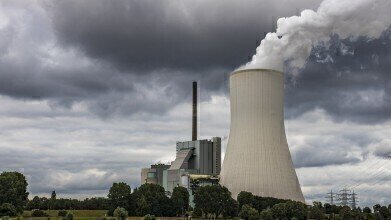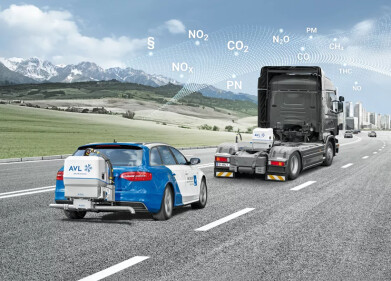Air Monitoring
Why Do We Monitor for Methane?
Feb 27 2022
Composed of a combination of carbon and hydrogen molecules, methane is a naturally occurring gas that is found in all four of the alchemical elements on Earth. It’s the chief component of the popular fuel source natural gas and has a wide variety of sources and uses, with many of the former predating human activity by millennia.
Over recent years, however, methane has become an increasingly hot potato in environmental and health and safety circles. Thanks to advances in modern technology, we now have an increasingly sophisticated array of monitoring techniques which allow us to quantify the volume of methane being emitted at individual sources, as well as make reliable estimations of its concentration in our atmosphere. But why, exactly, do we monitor for methane in the first place?
Patterns and progress
Perhaps the most important reason for monitoring the emissions of any gas – or, indeed, monitoring any metric whatsoever – is to learn more about how it fluctuates over time. For example, past and present monitoring techniques have led scientists to estimate that the concentration of methane in the atmosphere today is around 2.5 times greater than it was in pre-Industrial times.
That’s a huge indicator that anthropogenic activity is responsible for the upsurge in methane levels. Once aware of the changes, ongoing monitoring is now required to identify patterns in methane concentrations, link them to specific sources and ascertain whether any progress is being made in terms of curbing those emissions.
Climate change
While measuring performance is the superficial motive behind monitoring for methane, the principal reason for doing so is the gas’s impact on our environment. Methane is one of the key contributors to climate change and is believed to have a global warming potential (GWP) as much as 28 times greater than CO2 over a 100-year period. Over a shorter timescale of just 20 years, it’s even more powerful, with scientists estimating it retains heat 80 times more effectively.
Given that climate change is one of the biggest threats facing humanity today, it’s imperative that we monitor gases like methane to understand how our actions are affecting the planet.
Health and safety
As well as being harmful to the planet over an extended timeframe, methane can also be deadly to humans in a far more immediate sense. An excessive accumulation of the gas in a confined space can bring on methane poisoning, in which the body is starved of oxygen. This can result in minor symptoms such as dizziness, fatigue and nausea, through to more serious side effects such as impaired vision and memory loss all the way up to convulsions and even death.
Meanwhile, the high flammability of methane also makes it a significant fire risk at homes, businesses and industrial facilities. The fact that it is colourless and odourless means that it can escape detection until it is has already built up a sufficient backlog to cause a sizable inferno, which is another reason why regular and robust methane monitoring protocols must always be put in place. This is important from a health and safety point of view, but also from a legal compliance standpoint, too.
If you’re interested in learning more about the reasons why we monitor methane, the techniques employed in doing so or what the law says on the matter, the Industrial Methane Measurement conference promises to answer all those questions and more. Held in Rotterdam in the Netherlands on the 8th and 9th June 2022, the event is open to all-comers. Please visit the above link for more information.
Digital Edition
IET 34.2 March 2024
April 2024
Gas Detection - Biogas batch fermentation system for laboratory use with automatic gas analysis in real time Water/Wastewater - Upcycling sensors for sustainable nature management - Prist...
View all digital editions
Events
Apr 30 2024 Melbourne, Australia
Apr 30 2024 Birmingham, UK
May 03 2024 Seoul, South Korea
May 05 2024 Seville, Spain
May 06 2024 Minneapolis, MN, USA


















